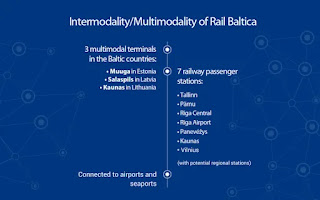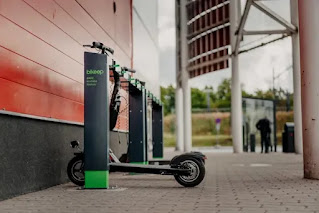Completing the gaps in Eastern European cross-border connectivity and creating a framework for future mobility throughout Europe.
Legislatures are placing cash into public transportation all around the world with the end goal to eliminate driving and make the earth greener. Also, today, Eastern Europe is putting vigorously into the Train Baltica rail foundation project.
The objective of Rail Baltica is to associate the Baltic States with the European rail framework. It is the biggest foundation project in the Baltic district in the beyond 100 years and one of Europe's significant ventures to expand versatility and travel prospects.
Poland, Lithuania, Latvia, Estonia, and, in a roundabout way, Finland are likewise members of the drive. It will interface Warsaw, Kaunas, Vilnius, Riga, Pärnu, Tallinn, Helsinki, and Tallinn.
Yet, it's something other than building a railroad; a stage for a network opens up a universe of chances for digitalization, cross-line development, and local area progress.
Rail Baltica makes the missing cross-line linkages that tight-spot countries together. The undertaking will include the development of three cargo terminals and seven arranged traveler stations along 870 km of rail lines during a ten-year time frame.
Making a maintainable Transportation Future
The undertaking's maintainability is another significant viewpoint. Electric trains will go at 249 km/h for travelers and 120 km/h for cargo (cargo). Tragically, there are no maglev trains here, which can go at velocities of up to 400 km/h. However, even nothing is desirable over nothing.
Be that as it may, there might be an opportunity in the future to retrofit MagRail innovation created by the Clean organization Nevomo. It avoids areas with safeguarded conditions, and it has explicit creature courses and hindrances against commotion.
However, not just cross-line trains. The Rail Baltica project is a devotion to multimodal portability. It comprises provincially interfacing trains, transports from the public authority and nearby states, confidential vehicles, electric vehicles, bikes, and e-bicycles.
For versatile new businesses, this is an incredible open door. These incorporate the exceptionally powerful Bolt (Estonia), the e-tricycle maker Ako Trike (Lithuania), and the independent transport producer Ave Tech (Estonia). Also appropriate are organizations like Particle Versatility which make sharing stage programming and Bikeep (Estonia), which develops parking structures and storage spaces for miniature portability (Latvia).
By and by, notwithstanding the undertaking's commitment, the venture's area alone represents various hardships.
The Difficulty of Train Modernization
The expense of modernizing Baltic rail is expected to be €5.8 billion, of which 85% will be paid for by the European Association and the leftover 15% by Latvia, Estonia, and Lithuania.
What's more, the expense of fuel and other structure supplies has gone up because of the contention in Ukraine. Furthermore, because of authorizations, products planned to be gained from Russia and Belarus can't be acquired, requiring additional costly imports from different countries.
A Significant Wartime Undertaking
For countries like Ukraine, rail transportation has forever been a significant asset, and the ongoing international climate has expanded the essential significance of the Rail Baltica project, both as far as imports and commodities since material deficiencies can possibly obliterate public economies.
By making rail available to their companions in Europe and upgrading military strategies all through the area, Rail Baltica will improve the security of the Baltic States.
Interestingly, EU reserves were given to the Latvian government in August to explicitly make a transportation foundation meet both common and military goals. Dr. Roberts Zle, VP of Latvia, expressed that the appropriation of military portability "is not generally unpretentiously overlooked, as previously."
The solid and speedy transportation of military supplies and hardware will rely vigorously upon freight rail. As indicated by Transport Pastor This Linkaits, further developing our country's guard capacities requires reliable availability with western Europe.
Rail Baltica is booked to start development somewhere in the range of 2026 and 2030. Regardless of the challenges, this drive will confront, there will be an abundance of long-haul benefits. Europe will turn into a more modest, more associated area for new companies, undertakings, and individuals, and this will improve the mainland.





_11zon.png)

No comments:
Post a Comment